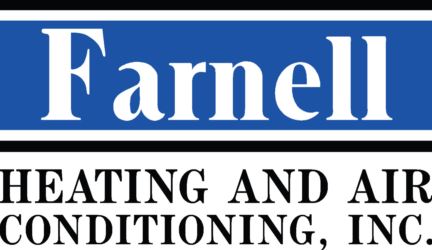
We spend a lot of time inside. In reality, the Environmental Protection Agency (EPA) has approximated being indoors comprises 90% of our time. However, the EPA also says your indoor air can be three to five times more polluted than outside your home.
That’s since our residences are securely sealed to enhance energy efficiency. While this is good for your heating and cooling costs, it’s not so fantastic if you’re amid the 40% of the population with respiratory allergies.
When outdoor ventilation is insufficient, pollutants such as dust and volatile organic compounds (VOCs) might get stuck. As a result, these pollutants could aggravate your allergies.
You can boost your indoor air quality with crisp air and usual housework and vacuuming. But if you’re still having problems with symptoms when you’re at your residence, an air purifier might be able to help.
While it can’t eliminate pollutants that have settled on your couch or carpet, it might help freshen the air moving around your residence.
And air purification has also been scientifically verified to help lessen some allergic symptoms, according to the American College of Allergy, Asthma and Immunology. It may also be appropriate if you or a loved one has lung trouble, like emphysema or COPD.
There are two options, a portable air purifier or a whole-home air purifier. We’ll go over the differences so you can learn what’s right for your residence.
Whole-House Air Purifier vs. Portable Air Purifiers
A portable air purifier is for a lone room. A whole-house air purifier works with your heating and cooling system to treat your entire house. Some models can work by themselves when your HVAC unit isn’t on.
What’s the Best Air Purifier for Allergies?
Go after a model with a High Efficiency Particulate Air (HEPA) filter. HEPA filters are placed in hospitals and deliver the greatest filtration you can find, as they catch 99.97% of particles in the air.
HEPA filters are even more beneficial when used with an ultraviolet (UV) germicidal light. This powerful mixture can destroy dust, dander, pollen and mold, all of which are standard allergens. For the greatest in air purification, consider a system that also has a carbon-based filter to decrease household vapors.
Avoid getting an air purifier that generates ozone, which is the main component in smog. The EPA advises ozone may aggravate respiratory issues, even when discharged at small amounts.
The Allergy and Asthma Foundation of America has made a list of questions to consider when getting an air purifier.
- What can this purifier extract from the air? What doesn’t it take out?
- What’s its clean air delivery rate? (A better amount means air will be cleaned faster.)
- How frequently does the filter or UV bulb need to be replaced]? Can I do that on my own?
- How much do new filters or bulbs cost?
How to Decrease Seasonal Allergy Symptoms
Want to have the {top|most excellent|best] outcome from your new air purification equipment? The Mayo Clinic advises doing other procedures to limit your exposure to things that can trigger seasonal allergies.
- Stay indoors and keep windows and doors sealed when pollen counts are high.
- Have other family members trim the lawn or pull weeds, since these tasks can worsen symptoms. If you have to do these chores on your own, consider wearing a pollen mask. You should also bathe immediately and put on clean clothes once you’re done.
- Avoid drying laundry outside.
- Use your air conditioner while at your house or while driving. Consider adding a high efficiency air filter in your home’s home comfort system.
- Equalize your residence’s humidity percentage with a whole-house dehumidifier.
- Hardwood, tile or linoleum are the suggested flooring types for decreasing indoor allergens. If your home has carpet, install a HEPA filter on your vacuum cleaner.
Let Our Pros Take Care of Your Indoor Air Quality Requirements
Prepared to move forward with adding a whole-house air purifier? Give our experts a call at 251-471-2674 or contact us online to get an appointment. We’ll help you find the right equipment for your residence and budget.
